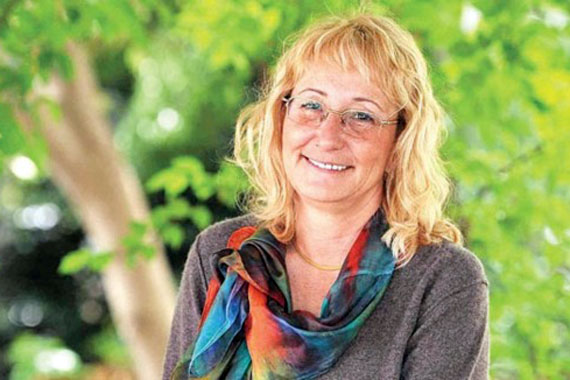2014: a difficult year?

Date posted: December 28, 2013
BERİL DEDEOĞLU
Turkey’s political life has entered a zone of turbulence. Some people were already accusing the governing team of being time worn, which is only normal after 11 consecutive years in power.
Now there are corruption allegations. Using public funds and political power for personal interests is not seen only in Turkey; almost all countries have to deal with similar problems. The important thing is choosing the right method to deal with these scandals.
The corruption scandals are the best way to test whether or not a country is sufficiently democratic and transparent. Of course, the current problem in Turkey is not only about how to deal with corruption; it is obvious that a major political struggle is under way behind closed doors.
The government believes that a powerful coalition is trying to corner and blackmail the prime minister. However, the latter has clearly announced that he has no intention of bowing out. One of the components of this alleged coalition is a group of people who have helped the government until very recently. If this so-called anti-government coalition was only composed of opposition parties, business opponents, foreign forces or those social segments worried about the future of secularism, society would more easily understand the reasons for of the struggle.
Nevertheless, the fight is going on between old allies, and ordinary people don’t understand why, all of a sudden, the Hizmet movement and the government are at odds. One can’t say that these two sides’ expectations for Turkey’s future are that diverse, so people don’t get what their real problem is with each other.
Public opinion is bombarded with “last minute” developments about Cabinet reshuffling and corruption allegations, but the current situation needs to be studied in a cool-headed manner. We know that the two sides once cooperated to limit the army’s political role. Despite notable successes, one can’t say that democratic acquisitions are entirely solid. Our state mechanism is still not totally structured according to democratic standards. Coup plotters still benefit from the things that are lacking in our democracy — for example, those being tried for the Feb. 28 post-modern coup have all been released.
The basic problem during the coup trials was perhaps the effort to punish a number of opponents by using legal procedures. Anyway, the current picture we have is quite unpleasant: The powerful alliance that has helped the Justice and Development Party (AK Party) until now has been broken up; many people from the prime minister’s entourage are being accused of corruption; and the prime minister has declared that he has launched a new “independence war.” By the way, the leader of the main opposition party has been criticized for getting too close to the US ambassador, and the Kurdish political movement is having a hard time guessing what the future of the negotiation process will be.
This picture serves the interests of only one segment: those who once were accused of fomenting a military coup. These people already have no sympathy for the AK Party, which they accuse of disrespecting the fundamental values of the republic, and one mustn’t think they are just sitting and watching. They will, sooner or later, try to interfere.
However, they will not interfere as they were used to doing in the past. They will probably propose a temporary coalition to one of the protagonists. They will not openly cooperate with the main opposition Republican People’s Party (CHP) because they need an “acceptable” CHP, and they know Turkey’s people don’t like political actors too close to the army. They may propose an alliance with the government, though. Let’s hope our armed forces will not again be pulled into political life.
I wish you all a very happy new year.
Source: Today's Zaman , December 27, 2013
Tags: Dialogue | Hizmet (Gulen) movement | Turkey |
























